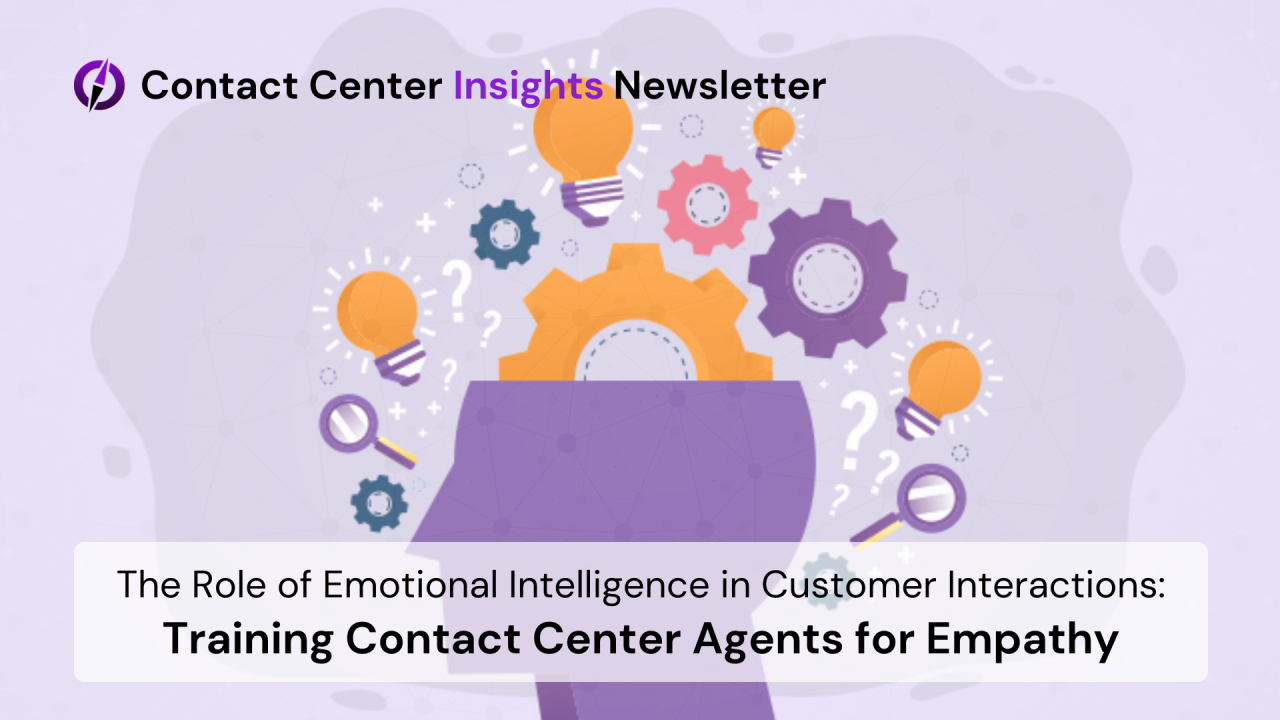Today, we’re exploring a vital aspect of customer service: the role of emotional intelligence in customer interactions. In the dynamic world of contact centers, where agents navigate a diverse range of customer emotions daily, empathy and emotional intelligence are essential skills. Join us as we delve into the significance of emotional intelligence in fostering positive customer interactions and how training contact center agents for empathy can enhance the overall customer experience.
Customer interactions in contact centers are not just about providing solutions; they’re about understanding and addressing the underlying emotions of customers. Emotional intelligence allows agents to empathize with customers, understand their perspectives, and respond with compassion and care. By recognizing the importance of emotional intelligence, contact centers can create meaningful connections with customers, leading to higher satisfaction and loyalty.

Let’s explore four key strategies for training contact center agents for empathy:
- Emotional Awareness: Start by helping agents develop self-awareness of their own emotions and how they impact their interactions with customers. Training sessions can include exercises to recognize and manage emotions effectively, enhancing agents’ ability to stay calm and composed in challenging situations.
- Active Listening: Teach agents the art of active listening, where they focus not only on the words spoken by customers but also on their tone, body language, and underlying emotions. By listening attentively and empathetically, agents can demonstrate genuine concern and validate customers’ feelings, fostering trust and rapport.
- Perspective-taking: Encourage agents to step into the shoes of customers and view situations from their perspectives. Role-playing exercises and scenario-based training can help agents understand different customer emotions and tailor their responses accordingly. By empathizing with customers’ experiences, agents can offer more personalized and effective solutions.
- Conflict Resolution: Equip agents with conflict resolution skills to manage difficult interactions with empathy and professionalism. Training modules can focus on de-escalation techniques, empathy statements, and active problem-solving strategies. By handling conflicts with empathy and understanding, agents can turn challenging situations into opportunities to strengthen customer relationships.



